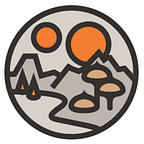Genesis Content: Funding the Future of Blockchain Gaming
Investing $5 Million for innovations in blockchain gaming
We are extremely excited about the development coming from the entire Decentraland community! While we see Decentraland as a community-driven project, we also want to welcome larger and more ambitious projects to our platform. Our goal is to provide the tools and framework that innovators and entrepreneurs need to push the boundaries of blockchain gaming.
Introducing the Genesis Content Program
We would like to invite teams of developers and artists to submit proposals for blockchain games or interactive experiences that could be built on Decentraland. To encourage innovation and growth in decentralized online gaming, we will be investing a total of $5 million in project financing to be shared among the top applicants.
All studios are welcome: whether you’re a small group of indie game developers or a seasoned, professional studio, we want to hear from you.
Blockchain gaming in Decentraland
The Decentraland platform presents an entirely new and unexplored opportunity for designing virtual experiences in the form of blockchain-based games: games that leverage Ethereum’s decentralized consensus to provide provably scarce digital assets, while simultaneously allowing developers to monetize their games on a borderless, worldwide financial network.
We’ve been thinking hard about blockchain games in Decentraland, and have identified several key characteristics that we think will have a big impact on how these games are built:
- Small parcel footprints — Given the fact that LAND is scarce and that developers can only host their games on the LAND they control, the “play space” that each game may take up is limited. This means that as a developer, you will have to design your game to fit within the parcel boundaries of your LAND. Decentraland does provide the opportunity to build decentralized item or collectible based games, like trading card games, that can be accessed “remotely” from anywhere in Genesis City. However, even these games still require at least one LAND parcel to host and run the game.
- Distributed ownership — Unlike traditional MMO games or VR platforms that are created and controlled by a single company, Decentraland is a shared, open source hub for user generated content. Because we want to encourage diversity in the games that are built for Decentraland, LAND developers (as in real life) must respect the property boundaries of others. However, Decentraland makes it possible to build distributed games that are hosted across multiple parcels.
- Limited graphics — We are building Decentraland with a “web-first” approach, following Google’s lead in incentivizing a low-poly aesthetic. This will optimize the quality of the experience for as many users as possible without favoring any single device or binding Decentraland to any particular app store.
Imposing these simple constraints on the design and scope of different projects allows us to guarantee a truly memorable experience to a much wider range of users, compared to traditional gaming platforms.
What do these games look like?
We’ve identified a few common game genres that are particularly well suited for Decentraland:
- Scavenger hunts: in these games, players are able to collect and catalog tokenized, digital assets from different areas of the world. LAND owners can take part by hosting game assets on their parcels to attract visitors, and players are incentivized to explore larger areas of the world.
- Skill competitions: in skill competitions, players face off one-on-one in smaller playspaces in a variety of skill-based games, similar to an arcade or amusement park.
- Crafting: by providing different tokenized “crafting materials”, players can craft unique, immutable 3D content to host on their LAND or decorate their avatar. Allowing users to craft their own non-fungible digital assets introduces additional rarity and the potential for other emergent features.
- Parcels as play squares: large-scale, cooperative games can use the map as a giant game board. With that information, you can play, as community teams, games like Go and Battleship with a long time horizon.
- Loot crate games: in loot crate games, players can buy, create, and store loot crates containing different assets and content for other players to discover and interact with. Read this blogpost from Chris for a detailed explanation of what this could look like.
For a full rundown of these different game types, read this blogpost by Chris Chapman.
How do I get my team involved?
To send in your proposal for consideration, complete and submit this form.
The Genesis Content Program will be ongoing, with no limited timeframe. We would like to welcome any feedback on what can be improved. Decentraland is built by the community for the community, and we’re here to support you!
Keep up to date with our latest developments
- Joining us on Discord
- Subscribing to our developer updates mailing list
- Following us on Twitter
- Subscribing to our subreddit
- Joining our Telegram
- Get started with the SDK!
